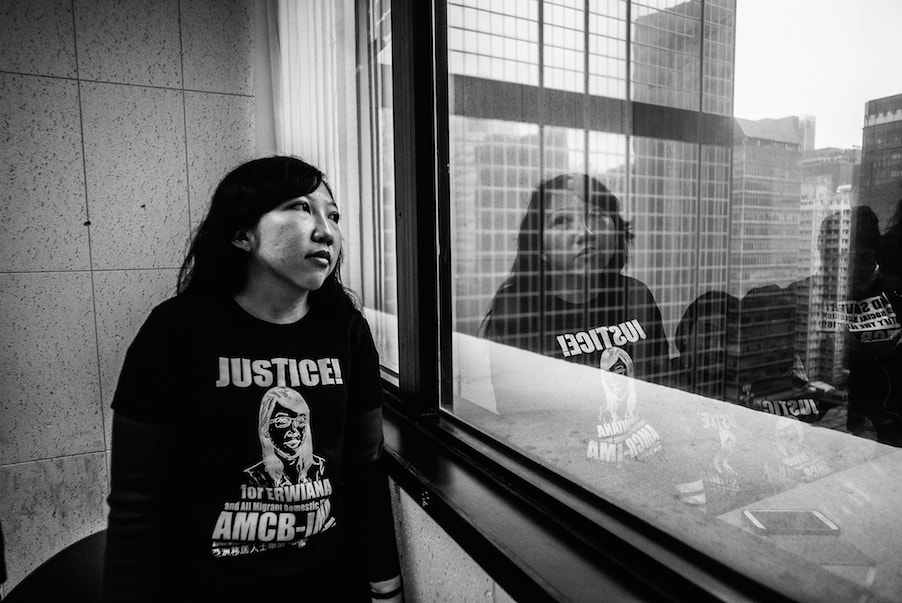A new study has found that 17 percent – or one in six – of Hong Kong migrant domestic workers surveyed are in forced labour.
The Justice Centre Hong Kong report, titled “Coming Clean“, is the first of its kind and found only 5.4 percent of the more than 1,000 domestic helpers surveyed showed no signs of exploitation.
Two thirds (66.3 percent) showed strong signs of exploitation, but were not considered to be in forced labour. The average number of working hours per week was 70 for all respondents.

The prevalence of forced labour and exploitation among foreign domestic workers in Hong Kong. Credit: Justice Centre Hong Kong
The respondents were from eight different countries and had been approached on the street at different locations in the city.
The questionnaire asked respondents about their working conditions and recruitment, including whether their mobile phones had been confiscated, if they were forced to work on call, or they had been deprived food, water or sleep as punishment.

This photo was taken by Xyza Cruz Bacani, a former Hong Kong domestic worker who has achieved international fame for her documentary photography work.
Four out of 10 (39.3 percent) did not even have their own room to sleep in, with 35.2 percent sharing a room with a child or an elderly person, and two percent sleeping in a kitchen or communal space.
The centre emphasises that physical violence is only one facet of forced labour, which can include excessive debt imposed by recruitment agencies. Indeed, such debt was found to the biggest predictor of whether a domestic worker would be vulnerable to forced labour. Over one third of respondents had debts that were at least 30 percent of their reported annual income.
“Unscrupulous recruitment and placement agencies, brokers and moneylenders, have a huge role to play, and lack of adequate regulation and of stiffer penalties on these agencies that overcharge is having a detrimental human rights impact on migrant domestic workers,” said Victoria Wisniewski Otero, co-author of the report.
The yearlong study also found that of the domestic workers in forced labour, one in seven (14.0%) were trafficked into it.
Contrary to the report’s findings, the government has “repeatedly stated that there is no evidence that Hong Kong is a source, destination or transit area for human trafficking”, according to the NGO.

Erwiana Sulistyaningsih (C) leaves a Hong Kong district court with her supporters. Photo: Bobby Yip/Reuters
Last year, a Hong Kong woman was sentenced to six years in prison for torturing her maids. She abandoned one of her domestic workers, Erwiana Sulistyaningsih, at the Hong Kong airport with open wounds and barely able to walk. Erwiana was named one of TIME’s 100 most influential people in 2014 for speaking out about her treatment at her former employer’s hands, and her story made headlines around the globe.
Despite the media attention, the Justice Centre believes that exploitation is even more widespread than the Hong Kong public believes, and that the local policies and regulations in place are not sufficient to protect foreign domestic workers.
“The survey findings provide much-needed evidence to push for policy and legislative change around forced labour, human trafficking and domestic worker rights in Hong Kong,” said Piya Muqit, the executive director of the Justice Centre.
“Hong Kong must come clean and acknowledge these problems; it can no longer afford to simply sweep them under the carpet.”
If you are a domestic worker seeking help, please click here to see how the centre can be of assistance.





Reader Interactions